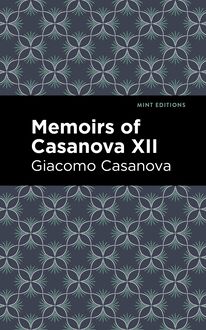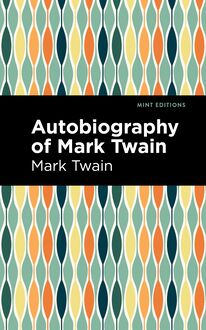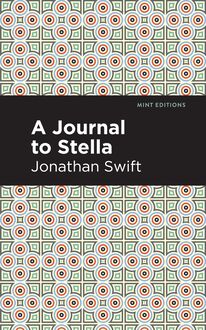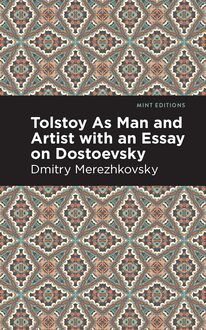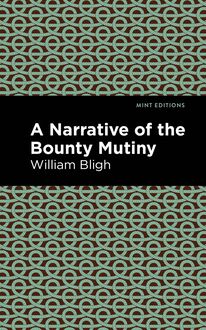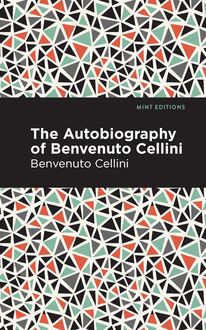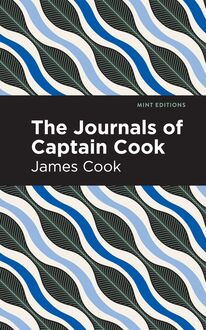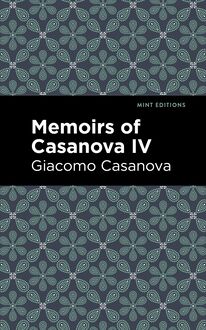-
 Univers
Univers
-
 Ebooks
Ebooks
-
 Livres audio
Livres audio
-
 Presse
Presse
-
 Podcasts
Podcasts
-
 BD
BD
-
 Documents
Documents
-
- Cours
- Révisions
- Ressources pédagogiques
- Sciences de l’éducation
- Manuels scolaires
- Langues
- Travaux de classe
- Annales de BEP
- Etudes supérieures
- Maternelle et primaire
- Fiches de lecture
- Orientation scolaire
- Méthodologie
- Corrigés de devoir
- Annales d’examens et concours
- Annales du bac
- Annales du brevet
- Rapports de stage
La lecture à portée de main
Vous pourrez modifier la taille du texte de cet ouvrage
Découvre YouScribe en t'inscrivant gratuitement
Je m'inscrisDécouvre YouScribe en t'inscrivant gratuitement
Je m'inscrisEn savoir plus
Vous pourrez modifier la taille du texte de cet ouvrage
En savoir plus

Description
Autobiography of Sir Walter Besant (1902) is a posthumously published autobiography by Walter Besant. Although he is more widely known for his works of fiction and book-length studies of the city of London, Besant was also a gifted autobiographer whose unique sense of self and rich memories make for an entertaining, informative read. “I am supposing that [man] has the choice offered him, together with an outline of the future—not a future of fate laid down with Calvinistic rigour, but a future of possibility. And as time, past or future, does not exist in the other world, I am supposing that a man can be born in any age that he pleases.” The son of a merchant, Walter Besant would combine ambition with wit to become one of Victorian England’s leading intellectual figures. His autobiography is not just the portrait of a man, but a record of a century that saw empires rise and fall, industry outpace agriculture, and the life of humanity change forever, for better or worse. Unsatisfied with the success and fame he found in his literary work, Besant dedicated himself to social causes and was a true champion of the poor in London and around the world. With a beautifully designed cover and professionally typeset manuscript, this edition of Walter Besant’s Autobiography of Sir Walter Besant is a classic of English literature reimagined for modern readers.
Sujets
Informations
| Publié par | Mint Editions |
| Date de parution | 16 novembre 2021 |
| Nombre de lectures | 0 |
| EAN13 | 9781513293912 |
| Langue | English |
Informations légales : prix de location à la page 0,0500€. Cette information est donnée uniquement à titre indicatif conformément à la législation en vigueur.
Extrait
Autobiography of Sir Walter Besant
Walter Besant
Autobiography of Sir Walter Besant was first published in 1902.
This edition published by Mint Editions 2021.
ISBN 9781513291062 | E-ISBN 9781513293912
Published by Mint Editions®
minteditionbooks.com
Publishing Director: Jennifer Newens
Design & Production: Rachel Lopez Metzger
Project Manager: Micaela Clark
Typesetting: Westchester Publishing Services
C ONTENTS A P REFATORY N OTE I. C HILD AND B OY II. C HILD AND B OY ( CONTINUED ) III. S CHOOL- B OY IV. K ING’S C OLLEGE , L ONDON V. C HRIST’S C OLLEGE , C AMBRIDGE VI. A T RAMP A BROAD VII. L ’ Î LE DE F RANCE VIII. E NGLAND A GAIN : T HE P ALESTINE E XPLORATION F UND IX. F IRST S TEPS IN THE L ITERARY C AREER — AND L ATER X. T HE S TART IN F ICTION : C RITICS AND C RITICASTERS XI. T HE N OVELIST WITH A F REE H AND XII. T HE S OCIETY OF A UTHORS AND O THER S OCIETIES XIII. P HILANTHROPIC W ORK XIV. T HE S URVEY OF L ONDON XV. T HE A TLANTIC U NION XVI. C ONCLUSION : T HE C ONDUCT OF L IFE AND THE I NFLUENCE OF R ELIGION
A P REFATORY N OTE
“… It is hard to speak of him within measure when we consider his devotion to the cause of authors, and the constant good service rendered by him to their material interests. In this he was a valorous, alert, persistent advocate, and it will not be denied by his opponents that he was always urbane, his object being simply to establish a system of fair dealing between the sagacious publishers of books and the inexperienced, often heedless, producers. How unselfishly, with how pure a generosity he gave his valuable time to the previously neglected office of adviser to the more youthful of his profession, may be estimated by a review of his memorable labours in other fields. They were vast and toilsome, yet he never missed an occasion for acting as the young author’s voluntary friend in the least sentimental and most sensible manner. He had no thought of trouble or personal loss where the welfare of his fellow-workers was concerned…”
—Mr. George Meredith, writing of Sir Walter Besant in the Author of July, 1901
An autobiography should be its own justification and its own interpretation. There should be no room for a preface and no need for any intermediary between the writer and the public to whom he has designed to appeal. If it is necessary to add much to an autobiography, the author is made to appear to have suppressed things that he should have said; if any passages are deleted, the portrait of himself which he proposed to draw is rendered incomplete. I have kept these things before me, and in preparing Sir Walter Besant’s autobiography for the press have confined the modifications to the correction of obvious slips, and to the addition of certain passages—mainly quotations from his own works a —to which references were made in the manuscript. Only a few words are called for, but the circumstances in which Sir Walter Besant’s autobiography is being published require a little explanation. These circumstances account for the slight corrections that have been made, as well as for the obvious incompleteness of his record in certain directions. It has been felt by his widow, by the executors of his will, and by his literary executor, that this, in justice to his memory, should be made clear to the reader.
Sir Walter Besant’s autobiography was written for publication, and no one had any right to withhold the book from the public. Yet although Sir Walter Besant expressly meant his account of his life to be published, death overtook him before he had prepared it for press. Those who were familiar with the man and his literary methods know well what that means; they know that the autobiography is not presented in the form it would have appeared in had it undergone the minute revision to which all his written matter was subjected. His limpid style did not betray the fact that he was a rigorous critic of himself. In the eleventh chapter of the autobiography he explains to all whom it may interest his manner of writing a book. He compares it to the task of an engineer constructing a tunnel, drilling and mining, completing the work behind while thrusting the pick into the work ahead. This autobiography is to some extent an unfinished tunnel. Being an autobiography, the course of the work was clearly indicated to the author, who was able to dispense with a rough draft. But what he should include and what he should omit, what he should treat fully and what he should regard as episodes, had to be considered, and this was certainly not done by Besant in all places with his usual thorough care. If he had followed his invariable plan of composition, he would have made up his mind on many such points only when he came to the actual task of revising. This revision was wont to be done upon his manuscript roughly, and then very fully upon a type-written copy of that manuscript. The manuscript of the autobiography had not been type-written. The written manuscript was fully and freely corrected, and it may be taken for granted that the earlier portions of the work now appear much as they were intended to appear; but the later chapters would certainly have been amplified, and possibly modified in some directions. Such revision cannot be done now by anyone, however sure we may feel that it would have been done by him. If certain passages appear to readers to be unnecessarily sweeping, and especially if those who enjoyed a personal acquaintance with Besant find expressions of opinion in his posthumous memoir which hardly represent the man they knew, I would press that these points may be remembered: that he died leaving the manuscript in what he would have considered an unfinished state; that it was his express desire that it should be published; and that any attempt to modify his work either by addition or subtraction, however honest in its intention to make a more accurate picture, would amount to a dangerous tampering with the original.
The autobiography does Besant scant justice, but, in noting the deficiencies, I do so with no completely unnecessary eulogy, and no equally unnecessary apology. Nor do I attempt to point out places where I believe the author would have made alterations. The revision might have taken the form of some modification of words, or the addition of other matter which would have altered the proportions of the work, and no one can guess which change, if any, would have been made. But it is permissible to say a few prefatory words to guard against false impressions, the creation of which would certainly not have been risked had Besant revised his manuscript as a whole.
Firstly, then, although Sir Walter Besant with much directness, and several times, inveighs against the evangelical tenets which prevailed in his youth, and although he enunciates at the end of his autobiography his religious creed with complete clearness, there is no real connection between his creed and his dislike of evangelical teaching. From a religious point of view his dislike was rather to ritualism. His hatred—for no other word can be used—of the evangelical teaching of his youth was an expression of his delight in life, and had nothing to do with his sacred convictions. He saw the beauty of holiness, but he loathed the doctrine that it was wrong to be happy in this world—the idea that heaven was propitiated by the earthly misery of those who sought to be good. He perceived the stupid, inconsistency and illogicality of those who held that the small section who did as they did would be saved whatever their failings, while all who differed from them about such a minor ethical point as, say, the propriety of play-going, must be irretrievably damned, whatever their virtues. “If a person,” says Overton in The English Church of the Nineteenth Century with regard to the evangelical school, “was enjoying a well-spread feast at Clapham, with all the charms of the conversation of Wilberforce or Milner—which to many people would be infinitely more entertaining than most of the so-called entertainments provided by ‘the world’—he was doing right, and was, so far as outward surroundings went, on the way to heaven. But if he was reading one of Miss Austen’s novels, or at a dance, or a concert, or at a card-table (not necessarily gambling), or seeing one of Goldsmith’s delightful plays acted, he was doing wrong, and, so far as outward surroundings, was in plain words on the way to hell.” Besant was born and bred in touch with these views, and imbibed a horror of their cruelty.
And if an intense dislike of seeing people wantonly made unhappy set him against the tenets of the party in the English Church with which he should have had most affinity, so an equally intense dislike of the mystical set him against ritualism. Sir Walter Besant was a clear-headed man who delighted in thinking out mental and social problems for himself, and detested anything that savoured of the incomprehensible. In more than one of his novels an important situation is the exposure of the vain pretension of one of the characters to extraordinary powers—powers of supernatural achievement, powers of discrimination or criticism of higher and more delicate character than those granted to ordinary mortals. He was ready to allow that we now see only through a glass darkly; but he was not ready to allow that any form of ordination would make one man see further than another, nor to believe that ceremonial might help insight by helping faith. Feeling deeply as he did the mystery of immortality, he resented any assumption on the part of a class of ability to see further into the mystery than other persons. Sir Walter Besant was, it must always be remembered, a scholar—and so successful a scholar that although in his modest record of his achievements he makes light of what he did as a young man, it is quite clear that he was from childhood an intellectual leader. His natural place was at the head. To his
-
 Univers
Univers
-
 Ebooks
Ebooks
-
 Livres audio
Livres audio
-
 Presse
Presse
-
 Podcasts
Podcasts
-
 BD
BD
-
 Documents
Documents
-
Jeunesse
-
Littérature
-
Ressources professionnelles
-
Santé et bien-être
-
Savoirs
-
Education
-
Loisirs et hobbies
-
Art, musique et cinéma
-
Actualité et débat de société
-
Jeunesse
-
Littérature
-
Ressources professionnelles
-
Santé et bien-être
-
Savoirs
-
Education
-
Loisirs et hobbies
-
Art, musique et cinéma
-
Actualité et débat de société
-
Actualités
-
Lifestyle
-
Presse jeunesse
-
Presse professionnelle
-
Pratique
-
Presse sportive
-
Presse internationale
-
Culture & Médias
-
Action et Aventures
-
Science-fiction et Fantasy
-
Société
-
Jeunesse
-
Littérature
-
Ressources professionnelles
-
Santé et bien-être
-
Savoirs
-
Education
-
Loisirs et hobbies
-
Art, musique et cinéma
-
Actualité et débat de société
- Cours
- Révisions
- Ressources pédagogiques
- Sciences de l’éducation
- Manuels scolaires
- Langues
- Travaux de classe
- Annales de BEP
- Etudes supérieures
- Maternelle et primaire
- Fiches de lecture
- Orientation scolaire
- Méthodologie
- Corrigés de devoir
- Annales d’examens et concours
- Annales du bac
- Annales du brevet
- Rapports de stage

